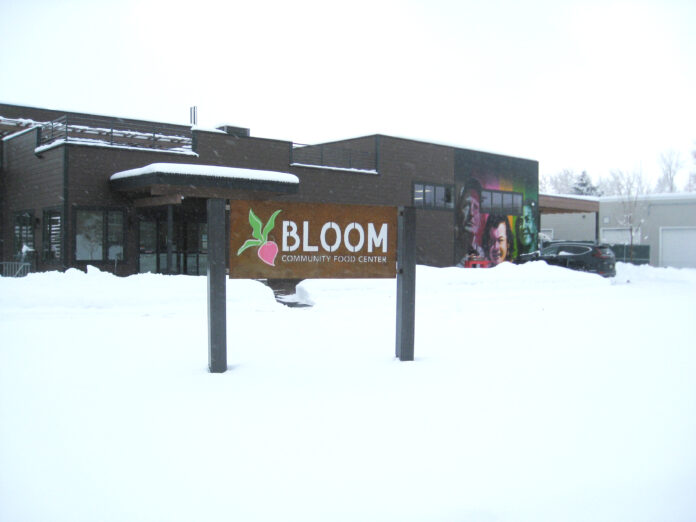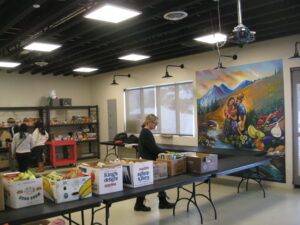
500 families served each week in the Wood River Valley
BY HAYDEN SEDER

In the last year, local organization The Hunger Coalition has averaged serving more than 500 families in the Wood River Valley each week, a 240 percent increase from what it was serving pre-pandemic. It’s no secret that the pandemic and increase in remote work caused an influx of new residents to the area. But, more surprising is that with that increase of people came an increase in the need for food assistance.
“Even before the pandemic, the amount of folks who needed food was higher than one might expect in an affluent community,” said Kristin McMahon, communications manager for The Hunger Coalition. “Then the pandemic hit as well as mass closures and layoffs — that made our numbers surge. What we found in the last year is that those numbers continue to climb at a time when we thought the dust might start to settle.”
Among the reasons that might still be affecting those numbers are people who moved to the area without realizing how high rent would be. The housing problem plaguing the area has created a disparity between wages and cost of living, meaning that sometimes those wages have to go to rent and leave little left over for food.
The Hunger Coalition provides food to its patrons through three weekly food distributions — two at their Bloom Community Food Center in Bellevue and one in Ketchum — as well as through their community kitchen and café. “We like to provide food access in a variety of ways to meet people where they are,” said McMahon. But with the increase in demand, the organization saw a bigger strain on food distributions, and a call to arms was put out for more volunteers to help staff struggling to keep up with the need. Distribution was shifted to every other week when more food points are given to improve the flow of the system and accommodate as many people as possible.
None of this would be possible without the support of donors or partnerships with wholesalers and other places The Hunger Coalition sources food from. Members of the local community are also crucial, like new Hailey resident Brian DiJulio. Moving from Seattle to their new residence in Old Cutters in May, DiJulio and his wife wanted to do something to help their new community. After learning about The Hunger Coalition, DiJulio, the vice president of Seattle Italian Cultural Center Casa Italiania and president of DiJulio Pasta Co., decided to use his own resources to contribute. Prior to the Thanksgiving holiday, DiJulio donated sixteen 15-pound turkeys and 25 bags of DiJulio pasta to the Bloom Community Food Center.
“Whatever comes up, I’m all for it, if I can help locally or recruit people,” said DiJulio. “I appreciate the position The Hunger Coalition is in and the job they’ve been doing; it’s a vital part of this whole area staying alive and well, especially with so many immigrants working here.”
The help of the local community in supporting The Hunger Coalition and, by extension, the people it serves, cannot be underestimated. “Monetary donations are definitely a crucial thing right now,” said McMahon. “We had a great outpouring of volunteers when we asked for help, but as we continue to give out this level of food and reach a new level of need, we really just run on donor dollars and could use all the help we can get.”
The holiday season is a time for gathering with loved ones around bountiful meals; hopefully this year no one in the Wood River Valley will have to go without. Whether you have it in you to donate to The Hunger Coalition, volunteer your time, organize a food drive, or drop off some food to one of the Bloom bins located in all local grocery stores.
“Always, we’re eternally grateful for the way our community continues to step up, especially when the going gets tough,” said McMahon. “Our community proves we’re not ones to stand idly by while our neighbors are struggling.”


